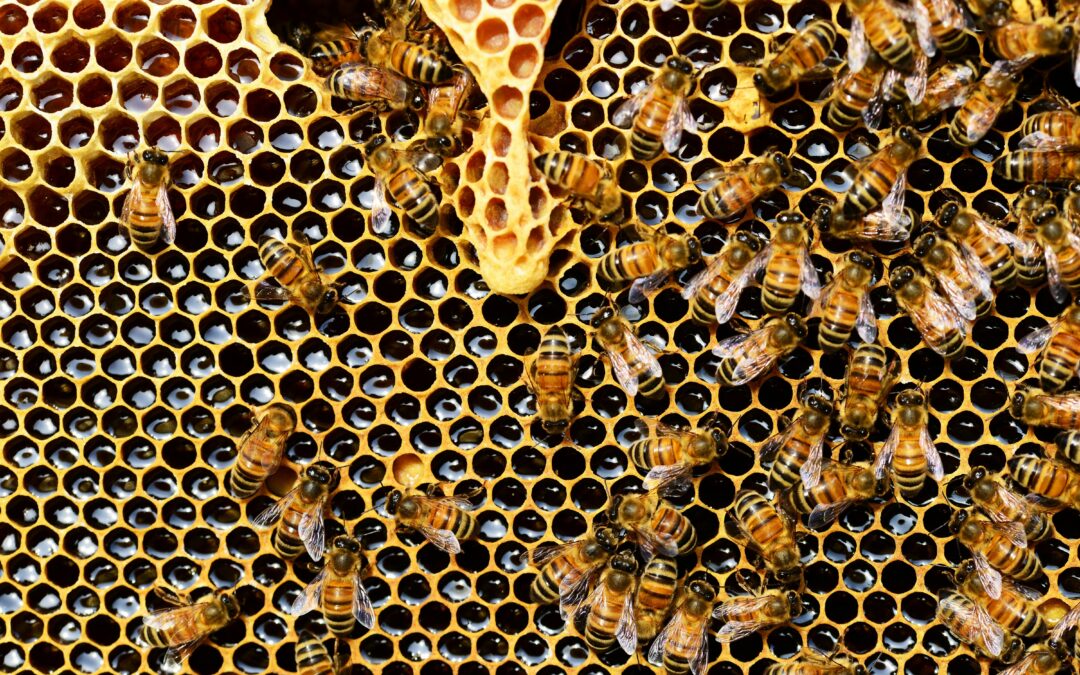Keep our news free from ads and paywalls by making a donation to support our work!

Notes from Poland is run by a small editorial team and is published by an independent, non-profit foundation that is funded through donations from our readers. We cannot do what we do without your support.
Polish beekeepers are buzzing at the news that the state post office, Poczta Polska, has launched the country’s first-ever courier service transporting live bees.
“This unique offer was created with the beekeeping community in mind, emphasising the national operator’s commitment to protecting these key insects for the ecosystem and promoting biodiversity,” said the company in a statement.
🐝📦 Ruszyła usługa w ramach #Pocztex – bezpieczny transport pszczół!
✅Odpowiadamy na potrzeby pszczelarzy i wspieramy bioróżnorodność:
🔹specjalne oznakowanie paczek,
🔹rekomendowane opakowanie z wentylacją i dostępem do wody,
🔹procedury stworzone z Polskim Stowarzyszeniem… pic.twitter.com/019qkcp06L— PocztaPolska (@PocztaPolska) April 14, 2025
To ensure the welfare of the bees, parcels are accepted only from Monday to Thursday, minimising the risk of getting stung by delays over the weekend. Dedicated facilities at sorting and distribution centres have been allocated for bee shipments, while couriers and logistics staff have had special training.
According to Poczta Polska, procedures for handling the insects were developed in consultation with the Polish Association of Breeders of Queen Bees. Transport is conducted in compliance with the Animal Protection Act and other relevant veterinary and animal welfare guidelines.
The post office has hived off the service to Pocztex, its courier arm. It will be available nationwide and is intended for both individual beekeepers and agricultural firms.
Poczta Polska notes that shipments of bees must be packed in recommended containers that ensure ventilation, stability and safety. Packages are marked with “Caution: live insects!” stickers and can be tracked online.
Two more weeks to save @notesfrompoland!
We're halfway through our campaign and we've received 300 donations from our readers. Thank you for the generous support!
But to continue our work we still need your help. Click below to learn more https://t.co/0gVkMlaA0W
— Notes from Poland 🇵🇱 (@notesfrompoland) April 15, 2025
Sebastian Mikosz, president of Poczta Polska, said the company was “proud to contribute to the protection of bees”. The post office notes that the animals play a crucial role in maintaining biodiversity by pollinating a wide variety of plants, “making them indispensable for agriculture and horticulture and thus for food security”.
A government report found in 2022 that the number of bee colonies in Poland had risen by 54% over the previous decade to reach two million, thanks to a national programme for supporting apiculture. It estimated the value of bees to Poland as pollinators at around 5 billion zloty (€1.2 billion).
“There are nearly 100,000 registered beekeepers in Poland,” says Monika Leleń from the Polish Association of Breeders of Queen Bees. The post office’s new service will “support the development of apiaries and contribute to the preservation of biodiversity”, she adds.
The launch comes after Poczta Polska has been hit in recent years by falling revenue in the face of a decline in traditional letters and intense competition from private delivery firms. Last year the post office announced plans to make 15% of staff redundant after recording record losses in 2023.
The number of bee colonies in Poland has risen 54% over the last decade to reach two million, thanks in part to a state programme supporting beekeepers.
Bees' value to the ecosystem as pollinators is estimated to be worth 5bn zloty (€1.1bn) https://t.co/ElISOc2o2T
— Notes from Poland 🇵🇱 (@notesfrompoland) May 30, 2022

Notes from Poland is run by a small editorial team and published by an independent, non-profit foundation that is funded through donations from our readers. We cannot do what we do without your support.
Main image credit: Pixabay / Pexels

Alicja Ptak is deputy editor-in-chief of Notes from Poland and a multimedia journalist. She has written for Clean Energy Wire and The Times, and she hosts her own podcast, The Warsaw Wire, on Poland’s economy and energy sector. She previously worked for Reuters.



















